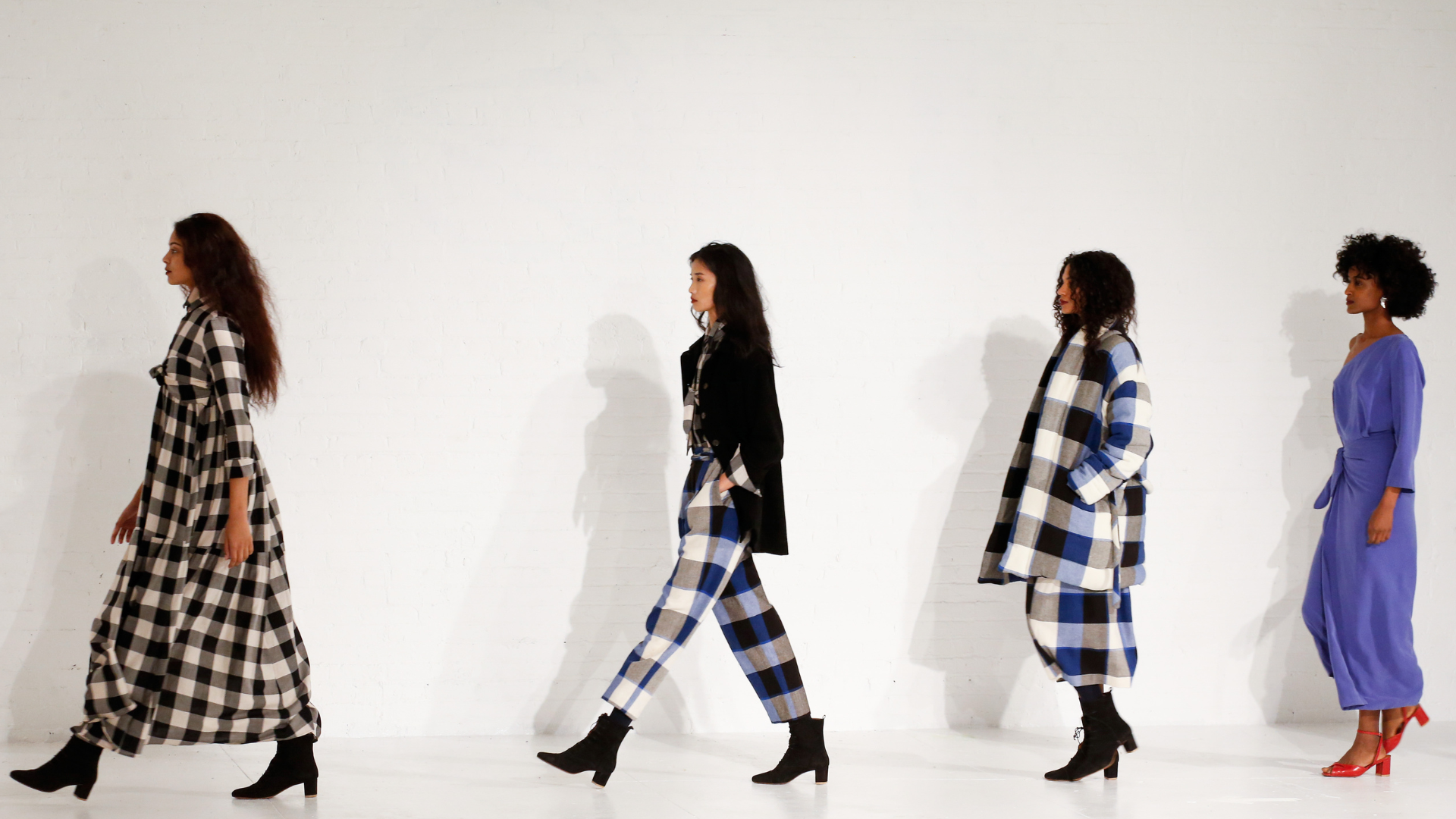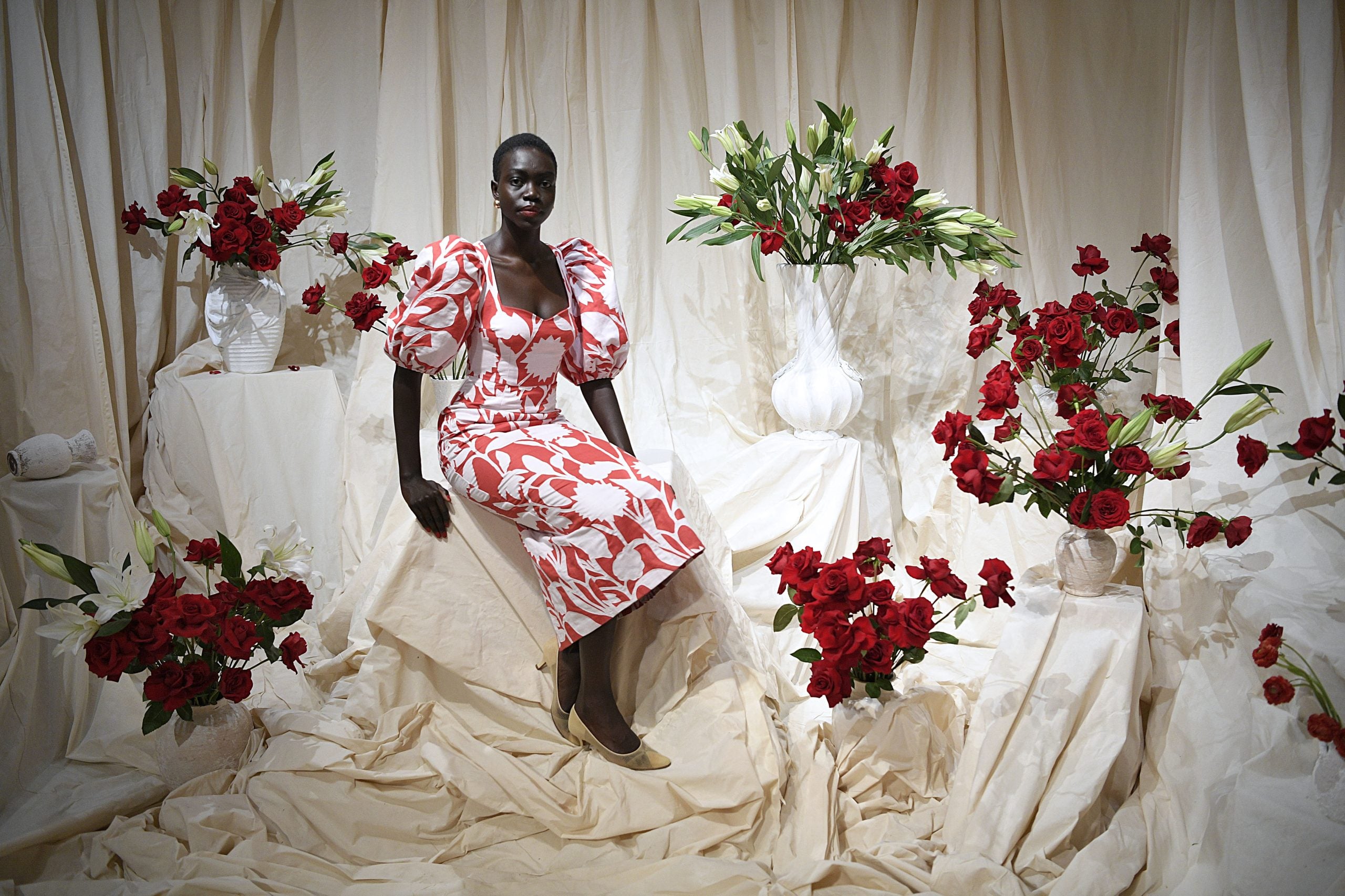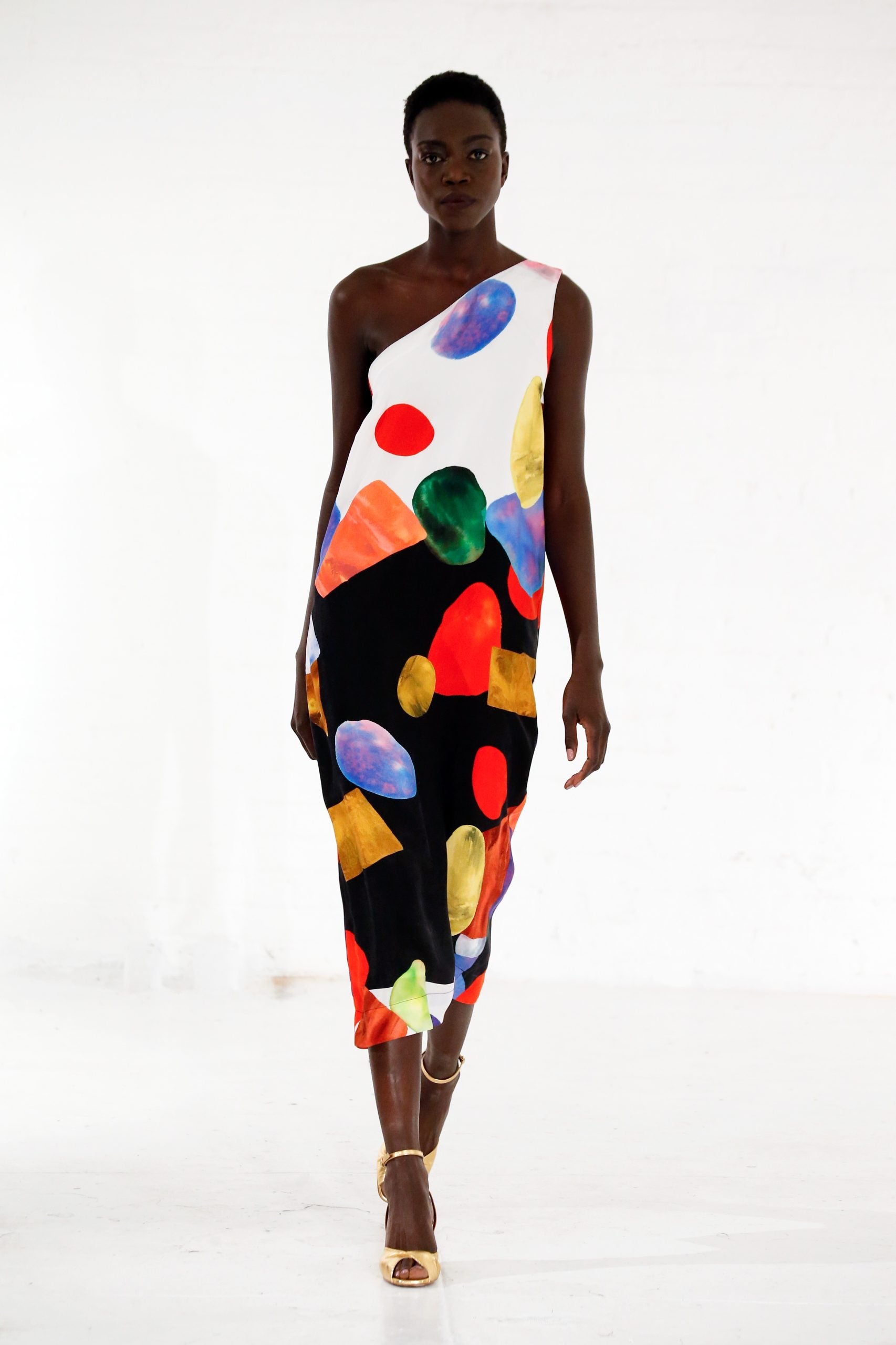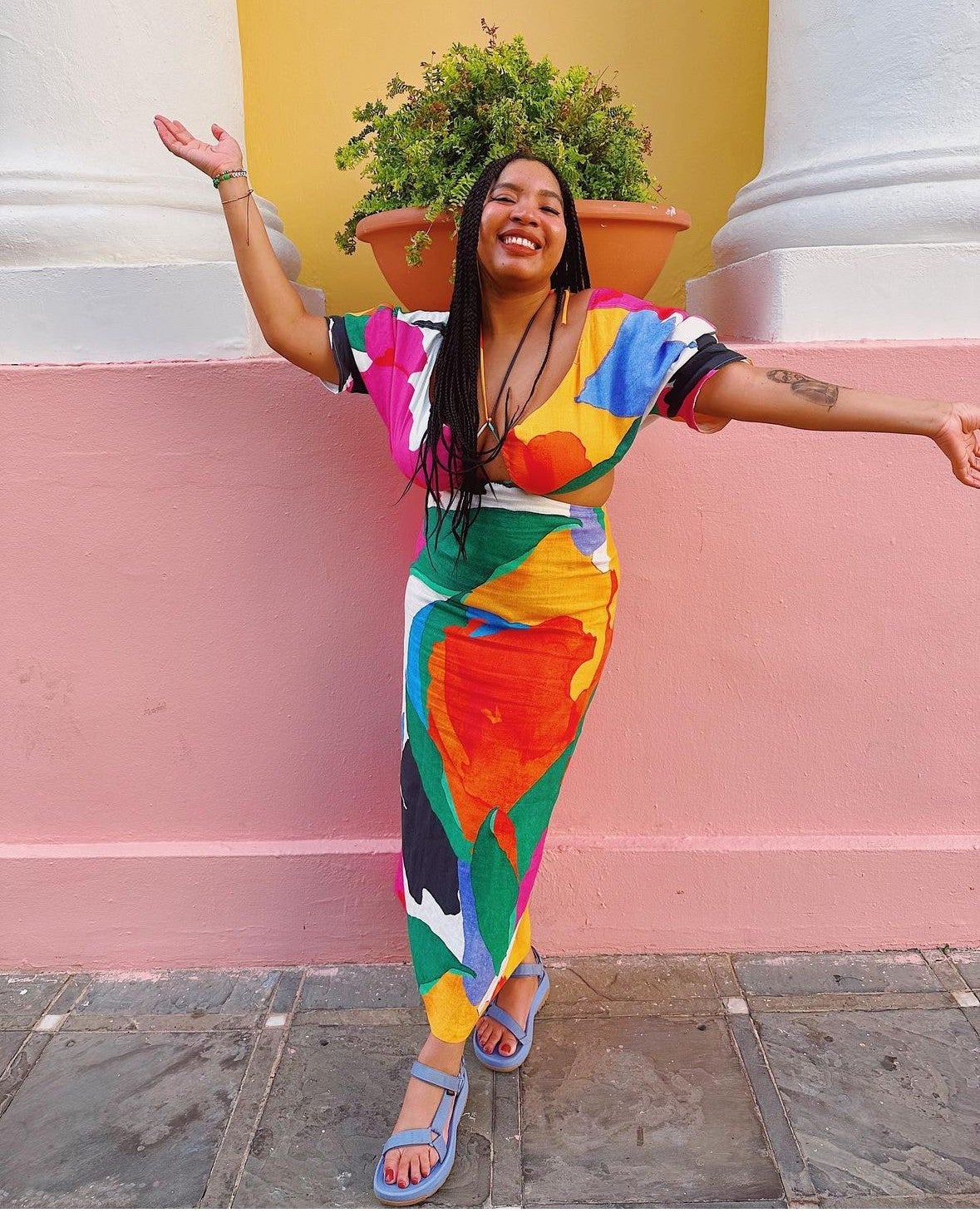
I was in my early 20s when I first began paying attention to Mara Hoffman. Her designs to me felt moving and illusory. The combination of the punchy tones of red she used and how each piece she created left me awe-struck. The tones she utilized in addition to the pieces boldly designed dresses from her collections reminded me of the sheer joy that I felt with clothing as a child. In my eyes, there was no limit to the universe Hoffman had created decades ago upon graduating from Parsons in 1999. Her boundless imagination is perhaps what sticks out to me most amongst a sea of designers creating garments for the sake of monetizing them. Hoffman’s creations always felt much more expansive than this.
Over the years, as I’ve grown from a fashion lover to a consumer, it’s become clear that this designer’s blueprint was different from many others. All of these notions came to a halt when Hoffman announced she’d be shuttering her business. But, it also offered a moment to reflect on her worthiness.

Kimberly Bryant, the Oakland-based founder of The Black Innovation Lab recalls the first time she wore a Mara Hoffman design. She shares it was during an interview feature for TheRealReal which highlighted her as a tech leader. “As a Black woman with a Southern heritage and a curvy figure, finding designer clothes that both fit well and made me feel confident had always been a challenge,” she expressed over email. But, that day she wore what she felt was a beautiful, figure-flattering design from Hoffman that made her feel seen and valued.
“It was clear that Mara understood and appreciated the diversity of women’s bodies. This experience was transformative for me. It wasn’t just about the fit of the clothes; it was about the acknowledgment of my identity and body type in a world that often overlooks us,” Bryant shared.
The founder mentioned that Hoffman’s inclusive sizing was a significant draw but what resonated deeply with her was the ethos behind the designs. “Mara’s work reflected an understanding and appreciation of diversity that went beyond size,” Bryant notes. “She recognized and celebrated different cultural backgrounds and the unique beauty each individual brings.”

Bryant also expressed that these notions were evident in Hoffman’s use of vibrant colors and textures which complimented brown skin tones. “Her holistic approach to inclusivity made me feel genuinely acknowledged and valued as a customer,” she added.
Joneé Nunes, a recruiter based in Washington, D.C. also felt seen by the creations that stemmed from Mara Hoffman. “I felt drawn to the fresh designs, and so much joy [was evoked] seeing customers of all sizes feel beautiful,” Nunes said. She also expressed that the brand shuttering is an undeniable loss for the fashion industry. Her first recollection of it was through swimwear, the bold geometric patterns have created a long-lasting memory for her.
“People are living in a time of economic strain, and fast fashion is often a solution for many,” Nunes shares. “Unfortunately, a devastating imbalance of waste is being created that has a global effect.” Nunes adds that brands like Mara Hoffman did what they could to combat this, but, sustainability is not a political priority–she mentions that Hoffman might have been ahead of her time in her eyes.
When reflecting on the space Mara takes up in the global fashion industry, it’s important to reckon with what will be lost too. Her ethical and sustainable standards were pinpointed in 2014. Vogue reports that she restructured her supply chain that year to focus on due diligence, she moved away from focusing on polyester, and she invested in her workers. Ensuring her garments were earning Fair Trade certifications was also important to Hoffman. With her direct-to-consumer business issues ensued.
“There are not many companies that have successfully done this for as long of a period as we have. And the reality is that the demands that are on a small company financially make it almost impossible to be privately held and run after a certain point,” Hoffman tells Vogue.
New York-based politics and culture writer Ashley Reese was initially drawn to Hoffman’s designs due to the colorful pieces and fun fabrics, sizing was secondary to her. “So many of my Black girlfriends and me were Mara stans,” she shares in an email. “I know she had the loyalty of the plus size fashion girlies, but she had my crew of Black women in a chokehold too.”

Reese received a one-on-one styling session with Mara in 2022, which is a fond memory of hers. She recalls trying on a bunch of pieces with Hoffman who was excited to see her in countless items. “I’m not some skinny mini–I’m tall and I’m not exactly slender. Mara saw me as a canvas ready to wear her garments, and I felt like she wanted me there. It was nice to be around a designer who seemed to embrace the versatility of the female form,” Reese adds.
Ashley ended up purchasing a midi-length skirt in the now-beloved “popcorn” style. She says she wears the skirt at least once a week. What Reese enjoyed about the brand was how solid the sales were–additionally, the fact that the extended size offerings were just as creative as the standard size offerings.
“The average person cannot make Mara Hoffman their entire wardrobe. But her pieces were such a nice treat, and you could tell there was thought behind the designs and quality in every stitch,” Reese said.
Bryant shared that the closure of Mara Hoffman’s clothing line is a stark reminder of the fashion industry’s ongoing struggle with sustainability and inclusivity. “It underscores the challenges that [many] designers face in maintaining ethical practices while also trying to meet the industry’s commercial demands,” Bryant added.
